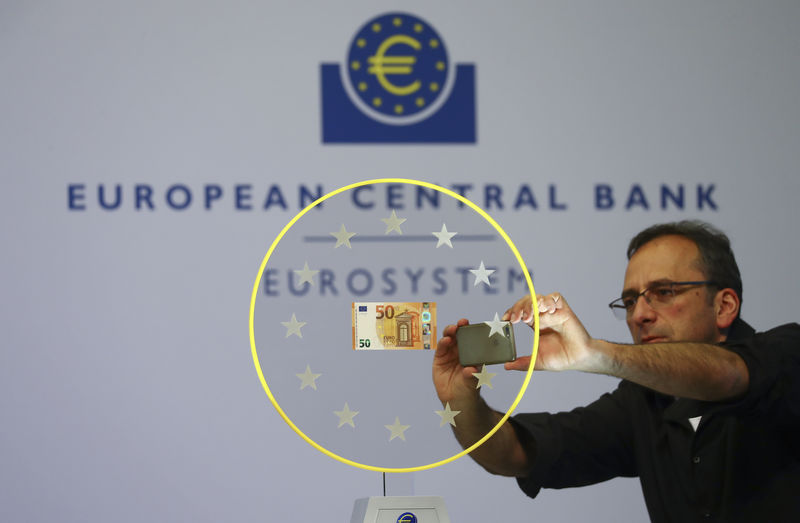(Bloomberg) -- European Central Bank policy makers warned against signaling too much economic optimism at their January rate-setting meeting, a view that proved prescient now that the coronavirus outbreak is dashing hopes for an upturn any time soon.
The Jan 22-23 Governing Council meeting was held as trade tensions appeared to be easing -- with a first phase of a U.S.-China deal announced and some of the uncertainties around Brexit subsiding -- and economic indicators showed signs of stabilizing. While welcoming that data, officials worried that an upbeat tone could boost market interest rates and dampen the impact of their monetary stimulus.
“Although a more positive assessment of risks could foster confidence in the upswing and further support economic developments, it was cautioned that a more optimistic outlook for the economy needed to be communicated carefully,” according to the account of the meeting, published Thursday.
Coronavirus Will Weigh on First-Quarter Growth
Read Bloomberg Economics’ PMI preview...
Since then, economic reports have shown the euro area to still be stuck in a deep slump, and coronavirus is hitting supply chains by shutting down factories in China. The single currency has fallen out of favor with investors, dropping almost 4% against the dollar this year to the lowest in almost three years.
The ECB also warned of potential trade issues, saying the U.S.-China deal could cost the European Union some exports as a result of “trade diversion,” and noting that U.S. and EU still have unresolved tariff issues. While Britain’s departure from the EU was likely to go smoother after Prime Minister Boris Johnson‘s election victory, pending EU-U.K trade talks could result in more divergence than previously expected.
The Governing Council kept its stimulus unchanged at the meeting, which was mostly notable for its decision to launch the first review of strategy since 2003. That assessment, due to be complete by the end of the year, will study the inflation goal as well as the institution’s policy toolkit and communication. It’ll also examine how to aid the fight against climate change.
Policy makers repeated that they see a need to evaluate the impact of current stimulus -- negative interest rates and a bond-buying program that was resumed last year -- “in the light of the potential side effects.” Financial-stability risks in particular had to be “monitored closely,” they said.
ECB Chief Economist Philip Lane warned earlier this month that the euro-area economy could experience a “pretty serious short-term hit” from the coronavirus outbreak. The European Commission called the epidemic a “key downside risk” to its already subdued growth forecasts, and Germany’s Bundesbank said the nation’s exporters are likely to suffer.
Renewed concerns about euro-area economy have prompted market speculation the ECB may need to add fresh stimulus, if it has room. Lagarde has warned that a decade of crisis-fighting has left its arsenal “significantly” depleted, and urged governments to step up spending.
The ECB will present updated economic forecasts at the next policy meeting in March, and policy makers stressed that the strategy review “should not be perceived as constraining the Governing Council in its readiness to act by adjusting all of its instruments, as appropriate.”
Separately, the ECB announced that it made a profit of 2.4 billion euros ($2.6 billion) last year, an increase of 790 million euros, mainly due to returns on its holding of dollar-denominated assets and on the debt it buys under quantitative easing. The profit is distributed to national central banks, meaning it effectively goes to the region’s governments.
(Updates with trade comments in fifth paragraph, ECB financial accounts in final paragraph)
